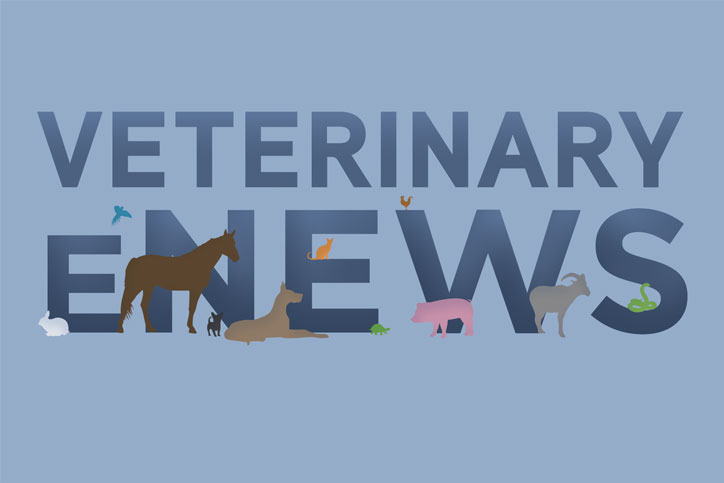Register now for the 2023 NYS Veterinary Conference October 6-8
NYSVMS
Registration is now open for the 2023 New York State Veterinary Conference, a three-day interactive event October 6-8 at www.nysvc.org with high-quality continuing education, offering up live and on-demand RACE and NYS continuing education credit opportunities. Our 2023 conference is once again a hybrid event offering: on-site, online, and on-demand sessions. Whether you join us on-site at Cornell University College of Veterinary Medicine or virtually, our sessions are all presented live. We will have our most popular tracks at Cornell and streaming those sessions, plus additional tracks to our virtual audience. After the event, sessions will be available on-demand. Co-hosted by the Cornell University CVM and NYSVMS, the conference features a diversity of species and professional development tracks, with something for everyone – from recent grads to seasoned practitioners and licensed veterinary technicians. Topics include: cardiology, controlled substances, dermatology, emergency and critical care, equine, internal medicine, medical humanities and many more! We will once again offer labs, networking opportunities, exhibitors to visit and fun extras throughout the weekend. For more information and to register, go to: www.nysvc.org.
April NYSVMS free CE online programs available!
NYSVMS
Each month NYSVMS makes available new CE online programs for free from our partner Vetbloom to our members and their LVTs. The April classes are: Inflammation: It’s a Pain When Things Blow Up!; Say What You Mean – Know What You Say; Twistin’ the Night Away – Gastric Dilatation and Volvulus and Wakin’ Up is Hard to Do.
Drugs targeted by lawmakers help treat animals, veterinarians say
Spectrum News
The U.S. Drug Enforcement Administration considers xylazine a major threat, especially when it’s mixed with the already deadly drug fentanyl. Lawmakers are looking to resolve the issue, but the industry for which xylazine was intended has some concerns about potential solutions to stop illegal use of the drug. Veterinarians across the state are speaking up as state and national lawmakers look to restrict access to xylazine, a common sedative and muscle relaxer used in veterinary medicine.
Veterinarian helper wins digital ag hackathon
Cornell University CVM
Large animal veterinarians – who trek to muddy barns and fields each day to work with their patients – face challenges when it comes to keeping records. Minerva Panda has an idea for a software application that could lead to more complete records, improve working hours for vets and provide valuable data to public health experts sleuthing for the next zoonotic outbreak.
Catalyzing the field of canine comparative oncology, benefiting researchers far and wide
AVMA
The Comparative Oncology Program at the National Institutes of Health has transformed canine comparative oncology since the program’s founding 20 years ago, according to Dr. Deborah W. Knapp at Purdue University and Dr. Steven Dow at Colorado State University, two of many veterinarians working in the field.
Theft, vandalism, and break-ins: How veterinary clinics can protect against security breaches
AVMA
Picture this, in your clinic’s payroll program, a manager continually raises her salary without permission from the practice owner. The owner doesn’t regularly check payroll and doesn’t realize anything is wrong until the manager has stolen more than $100,000. This horror story is more common than you think, and this specific case was handled by Veterinary Business Advisors Inc. (VBA). VBA offers legal, human resource, and practice management services to veterinary practices nationwide.
Veterinarian-jockey breaks the mold on and off the racetrack
AVMA
Dr. Ferrin Peterson has been on the back of a horse since she was practically a baby. As a veterinary student, she traveled the world to assist at horse races as part of her externships. But treating horses isn’t enough for this equine veterinarian. She has always wanted to ride the winning horse at the Kentucky Derby, and she has never been closer than now to achieving her dream.
Thriving when life is hard
DVM360
In 2020, we were introduced to the Great Resignation and experienced employees, in record numbers, voluntarily leaving the workplace during the COVID-19 pandemic. Most veterinary hospitals are still trying to recover as veterinarians, veterinary technicians, and hospital support staff remain in high demand. Some of the top reasons a veterinary hospital employee leave veterinary medicine completely were because of low wages, burnout, or a toxic workplace. Most of us have experienced these challenges at work and to truly thrive, changes must be made on all fronts to achieve a healthy work-life balance.
S. aureus a contributing factor in equine pastern dermatitis
The Horse
Equine pastern dermatitis, commonly known as scratches, causes clinical signs ranging from scaling and crusting to swelling and thickened skin. Many factors lead to scratches, with Staphylococcus aureus infection being one of the most commonly suspected. This bacterium can infect horses in a variety of ways and become resistant to antimicrobial treatment—as in the case of methicillin-resistant’s. aureus(MRSA).


Recent Comments